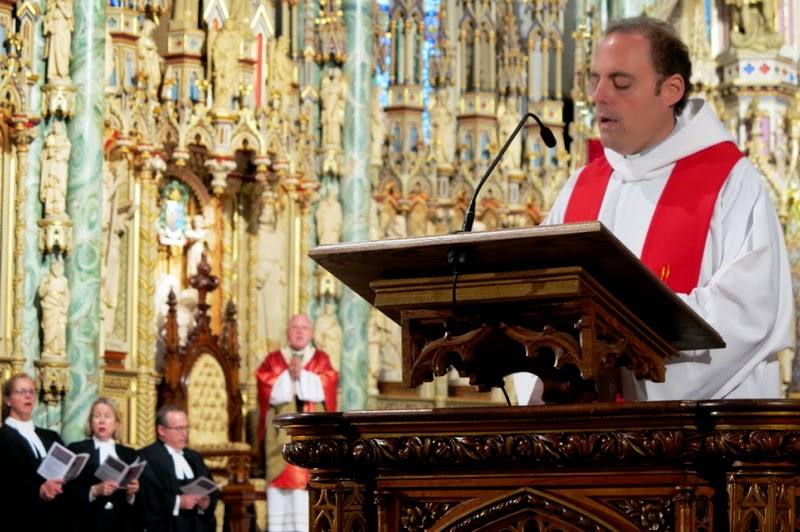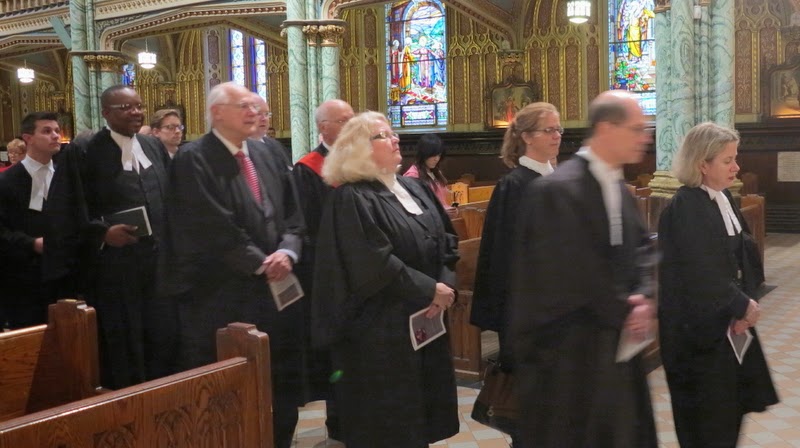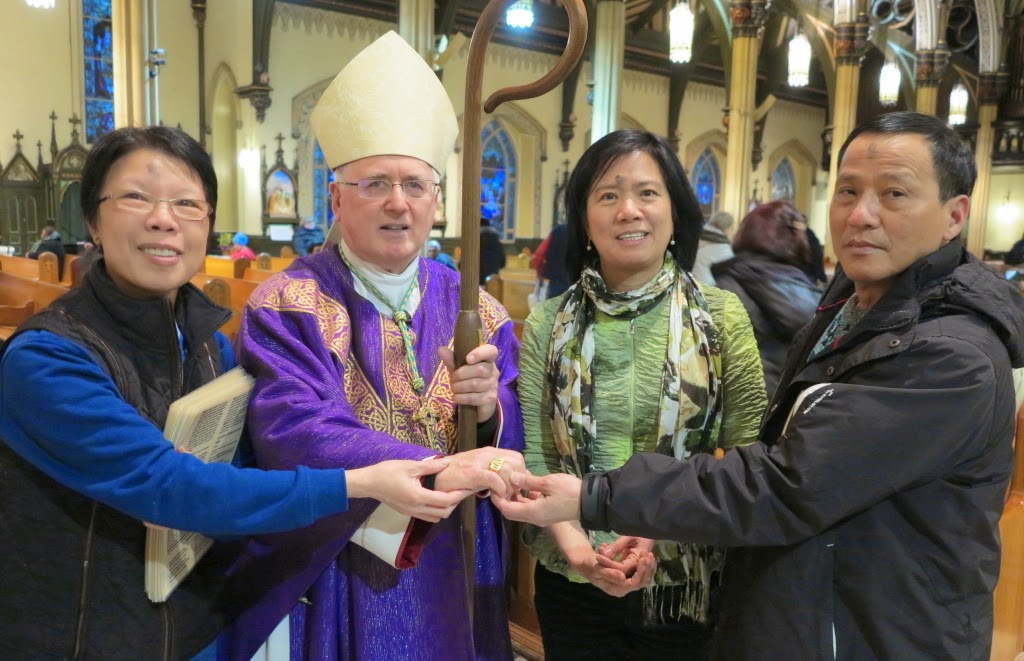A longer post than usual: three recent Ottawa ordinations to the diaconate: two candidates for the Priesthood and one Permanent Deacon.
Ce blogue est un peut long: deux ordinations diaconales de Candidats au sacerdoce et une personne au Diaconat permanent en dix jours:
Diaconal Ordination of Richard Lorenz at St Martin de Porres Parish, Bells Corners, ON [Anticipated] Fourth Sunday of Advent (Year “B”)–December 20, 2014
[Texts: 2 Samuel 7.1-5, 8b-12, 14a, 16 (Psalm 89 [88]); Romans 16.25-27; Luke 1.26-38]
Dear Brothers and Sisters in Christ,
Advent and the Christmas season dwell on God’s plan to bring salvation, joy and peace to all humanity. But the unfolding of God's saving plan takes place in an unassuming a manner, much like God's surprising decision to take David from pasturing sheep to shepherding Israel. Or calling Rick Lorenz to be a deacon and priest.
From Luke's narrative of the Annunciation, we get the impression of God's eye sweeping over the world until it lighted on a tiny village in Galilee, Nazareth, and focused in on a virgin engaged to a man named Joseph, who, we are told simply, was “of the house of David”. In the rhythm of the text, we can sense the angel coming to Mary in a meeting that was both awesome and transforming.
Mary—as with many others called by God—experienced confusion and fear. The angelic reassurance immediately led to Gabriel's revelation of God's purpose: “you will conceive in your womb and bear a son, and you will name him Jesus”.
God's design was to fulfil the promise to David in a way scarcely imaginable. The child this country girl is to bear “will be great, and will be called the Son of the Most High, and the Lord God will give to him the throne of his ancestor David”. God's promise to David would come about not by means of an earthly, political reign but in a spiritual dominion without end.
Mary's reply recalls Zechariah's question that we heard yesterday when the gospel announced the birth of John the Baptist. Whereas his response suggested doubt regarding God's plan, Mary's query was guileless and fully in keeping with faith in God. She declared simply that she had not had sexual relations with a man. The angel Gabriel —equally straightforwardly—replied that her child would be begotten through the Holy Spirit's overshadowing.
Mary's reply manifests the classic expression of trust in all that God might ask of a creature, “Here am I, the servant of the Lord; let it be with me according to your word” (1.38). It models for us a way to respond when God calls us to some special task as is the case with our brother in Christ, Rick Lorenz, this evening.
Gabriel offered Mary a profound sign of God's activity in the world, the joy of her relative Elizabeth, who, though formerly barren, had also conceived a son. It is such gospel joy that Pope Francis stresses in his first major writing, Evangelii gaudium. His Apostolic Exhortation opens with the following words, “The joy of the gospel fills the hearts and lives of all who encounter Jesus. Those who accept his offer of salvation are set free from sin, sorrow, inner emptiness and loneliness”.
In this present period of our life of the Church under the leadership of Pope Francis, every Christian, but particularly anyone called to Holy Orders or consecrated life, is being invited to taste this joy again, or perhaps for the first time, so as to be able to share it with those who hunger and thirst for what a meeting with Christ can bring them.
The Holy Father goes on to say, “I invite all Christians, everywhere, at this very moment, to a renewed personal encounter with Jesus Christ, or at least an openness to letting him encounter them… the Lord does not disappoint those who take this risk; whenever we take a step towards Jesus, we come to realize that he is already there, waiting for us with open arms” (EG, #3). Isn’t that what we would want for every person who comes through the doors of our churches this Christmas season? And, if they did experience this gospel joy, what a great grace it would be to them and to our church family here in the Archdiocese of Ottawa!
Beloved brothers and sisters: this man, Richard Lorenz, our son who is your relative and friend, is now to be advanced to the Order of Deacons.
In this ordination rite, our brother in the Lord will receive an outpouring of the Spirit of God to enable him to serve God's people in diaconal (and later on, priestly) ministry. He should be fully convinced that, no matter what eloquence or learning may be his from his studies at prior to and at, St. Augustine’s Seminary (and we are grateful for that learning), the power of his ministry to touch people's lives derives from the Holy Spirit at work in the proclamation of Jesus.
This holds true whether his ministry leads him to play guitar at praise and worship with the poor who frequent the shelters of Ottawa’s Shepherds of Good Hope, cover for a padre during the Christmas break in Alert, Canada’s military post closest to the North Pole, attend the pilgrims at Lac Sainte Anne, Alberta or engage school age students and visit the home-bound elderly as a pastoral intern here at St. Martin de Porres parish.
A deacon needs to keep ever in mind that it is Christ's Word of Truth that transforms doubting, hurting and needy men, women and children who open themselves to his message and gift of the Kingdom into salt for our earth, light for our world. Rick's task, as deacon and future priest, will be to help all God's children let their light shine before others and give glory to God in Heaven.
Strengthened by the gift of the Holy Spirit in ordination, this man will help the Bishop and his priests in the ministry of the word, of the altar, and of charity. He will be a servant to all. As a minister of the altar, he will proclaim the Gospel and its message of compassion and hope. He will prepare the altar for the Lord’s sacrifice, and distribute the Lord’s Body and Blood to the faithful.
In addition, it will be his duty, at the Bishop’s direction, to exhort believers and unbelievers alike. He will instruct them in holy doctrine. He will preside over public prayer, administer Baptism, assist at and bless Marriages, bring Viaticum to the dying, and conduct funeral rites.
Consecrated by the laying on of hands that comes down to us from the Apostles, he will perform works of charity in the name of the Bishop or the pastor. With the help of God, his labours will give public testimony of being a disciple of the Lord who came not to be served, but to serve.
As Deacon, my son, do the will of God from your heart. Serve the people in love and joy as you would the Lord. Because no one can serve two masters, look upon all defilement and avarice as serving false gods.
Like those chosen by the Apostles for the ministry of charity, you should be a man of good reputation, filled with wisdom and the Holy Spirit. See your ministry of caring for the poor and needy as an extension of God’s compassionate mercy.
Firmly rooted and grounded in faith, you are to show yourself chaste and beyond reproach before God and man, as is proper for a steward of God’s mysteries.
Never allow opposition to turn you away from the hope offered by the Gospel. Now you are not only a hearer of this Gospel but also its minister. Express by your actions the word of God that your lips proclaim, so that the Christian people, brought to life by the Spirit, may be a pure offering accepted by God.
Then on the last day, when you meet the Lord face to face, he will say, “Well done, good and faithful servant, enter into the joy of your Lord.”
* * * * *
Ordination au Diaconat permanent de Joseph Elivert—Fête de la Sainte Famille (Année «B»)—le 28 décembre 2014—Église du Sacré-Cœur, Ottawa
[Textes: Genèse 15, 1-6; 21, 1-3 [Psaume 104 (105)]; Hébreux 11, 8, 11-12, 17-19; Luc 2, 22-40]
La Parole de Dieu en ce dimanche de la Sainte Famille de Jésus, Marie et Joseph nous invitent à apprécier l’Histoire du Salut depuis les débuts du peuple juif jusqu’à son accomplissement avec la venue du Messie.
L’alliance de Dieu avec ses enfants est faite avec ce que nous sommes et avec ce que nous avons de bon à donner. La postérité peut, bien sûr, se voir dans les enfants comme nous le rappelle l’Écriture en ce jour… par ailleurs, elle se laisse deviner dans les actions simples du quotidien d’attention, de tendresse, d’accueil et de respect, qui traduisent l’offrande de ce que nous avons de meilleur. L’alliance a donc pour but de prendre ce que nous sommes prêts à donner (parfois même au prix de sacrifices) et de le mettre en partage avec Dieu pour que celui-ci le fructifie au centuple.
Tout ce que je viens de dire, est certainement vrai pour l’ensemble des disciples du Christ, mais je pense aujourd’hui particulièrement, à Joseph qui va être ordonné diacre. Une ordination n’est pas un rite conclusif venant marquer la fin d’une période d’initiation, période qui fut, pour toi Joseph, assez longue... Elle est fondamentalement un événement spirituel, une rencontre avec le Seigneur. Dans la célébration de l’ordination, l’Église présente à Dieu un homme pour qu’il en fasse un évêque, un prêtre ou un diacre, mais en accomplissant cela, l’Église s’en remet à Dieu et s’efface devant l’action de l’Esprit Saint.
La Bonne Nouvelle de ce dimanche parle de l’Esprit Saint…
Que serions-nous sans l’Esprit du Seigneur ?
Quelle parole pourrions-nous annoncer sans l’Esprit du Seigneur ?
Quel service arriverions-nous à accomplir sans l’Esprit d’amour ?
Nous ne pouvons donner que ce que nous avons d’abord reçu, et cela fait de nous des êtres de gratitude et de partage, d’humilité et de joie.
En cette fête de la Sainte Famille l’évangile nous rappelle que nous devons, nous laisser conduire par l’Esprit Saint.
Ce n’est pas par hasard, que saint Luc, par trois fois, souligne la présence de l’Esprit Saint dans le milieu qui entoure Jésus, et le reconnaît. Le trait le plus caractéristique de Syméon, c’est bien l’intimité qui existe entre Lui et l’Esprit de Dieu : « l’Esprit repose sur lui », « l’Esprit Saint lui a révélé » qu’il verrait le Messie, « l’Esprit (encore) a guidé ses pas vers le temple ».On a presque l’impression d’être dans une page des Actes des Apôtres, où l’Esprit vient sur les disciples de Jésus pour leur donner de « reconnaitre et de proclamer » le Seigneur ressuscité.
Dans quelques instants, Joseph, je vais t’imposer les mains. Tu vas être ordonné diacre. Cette ordination n’est pas un hasard, ni un instant magique, ni le résultat d’une ambition personnelle : c’est l’œuvre de l’Esprit de Dieu dans ta vie, le don de la grâce divine à une communauté croyante.
Joseph, on ne fait pas le diacre. On est diacre. Le diacre est configuré au Christ serviteur. Il est la présence sacramentelle du Christ serviteur au milieu de nous. Oui, le diacre est l’homme du service. La prière d’ordination le confirme: « Que le diacre fasse preuve d’une charité sincère, qu’il prenne soin des malades et des pauvres et qu’il s’efforce de vivre selon l’Esprit Saint».
Pour comprendre le diaconat, il ne faut pas partir de ce que fait le diacre. Il peut faire des choses, très diverses selon les charismes personnels, les besoins de la mission, les étapes de la vie. Il faut partir de ce qu’il est : présence sacramentelle du Christ serviteur. Autrement dit, ce n’est pas quelqu’un qui serait plus serviable que les autres ou plus généreux, ou plus disponible.
Quand on se situe uniquement dans le faire, on se place dans des questions d’organisation du religieux.
L’Église n’est pas une organisation du système du religieux. Elle est Mystère d’Amour, voulue par Dieu pour le Salut du monde. Sa raison d’être est de permettre à l’être humain de goûter l’amour de Dieu révélé dans le Christ.
Le thème de l’Année pastorale nous rappelle ce qu’est vraiment l’Église : Nous sommes de la famille de Dieu : l’Amour est notre mission. «Quiconque fait la volonté de Dieu, celui-là est mon frère, ma sœur, ma mère…» (Marc 3,35)
En ces jours de Noël, nous nous rappelons les Noëls que nous avons vécus. Nous nous rappelons les moments de joie et les moments qui ont été, peut-être, un peu plus difficiles. Partout, toujours, Dieu est là et nous accompagne – dans nos joies et nos tristesses. C’est ce qui nous permet de continuer notre route et de passer à travers les difficultés que nous rencontrons. Nous savons que Dieu est toujours là avec nous.
La grande famille de Dieu est composée d’une multitude de familles : il y en a qui se portent bien; il y en a qui connaissent des difficultés, des ruptures; il y en a qui connaissent la joie et d’autres qui sont dans la tristesse; il y a des familles traditionnelles et des familles recomposées. Toutes ces familles font partie de la grande famille de Dieu. Toutes ces familles cherchent à combler le besoin d’amour de chacun de leurs membres.
La fête de la Sainte Famille, avec l’évangile de la Présentation du Seigneur au temple…nous rappelle aussi les liens étroits qui unissent les générations, jeunes et moins jeunes. Nous le savons la communauté haïtienne est particulièrement sensible à cette réalité… Vous êtes un bel exemple pour nous!
Puisse le Seigneur bénir chacune de nos familles en ce temps de Noël. Puisse la Nativité du Seigneur nous apporter guérison, paix et consolation.
Gardons la Sainte Famille comme modèle et prions pour l’Église répandue par toute la terre, qui s’apprête à se réunir de nouveau en synode sur la famille à Rome en octobre prochain.
Joseph, au moment où tu accèdes librement à l’ordre du diaconat, il faut, comme les disciples choisis par les Apôtres pour le ministère de la charité, que tu cherches à être toujours un homme estimé de tous, rempli d’Esprit Saint et de sagesse.
Enraciné et fondé dans la foi, montre-toi pur et sans reproche devant Dieu et toute personne, comme il convient à un serviteur du Christ et à un intendant des mystères de Dieu; ne te laisse pas détourner de l’espérance de l’Évangile dont tu seras non seulement l’auditeur mais aussi le ministre.
En ces jours de Noël, en ce jour de ton ordination diaconale, je t’invite, Joseph, à la joie, à la confiance et à la simplicité du cœur avec ta famille et tous ceux et celles que le Seigneur, mettra sur ta route.
Chers frères et sœurs, que l’ordination de notre frère Joseph aujourd’hui soit aussi pour nous une invitation à répondre à l’appel de Dieu.
Comme nous le rappelle le pape François : « La joie de l’Évangile remplit le cœur et toute la vie de ceux qui rencontrent Jésus. Ceux qui se laissent sauver par lui sont libérés du péché, de la tristesse, du vide intérieur, de l’isolement. Avec Jésus Christ la joie naît et renaît toujours » Evangelli GaudiumNo.1.
* * * * *
Diaconal Ordination of Gerard Plant at Holy Redeemer Parish, Kanata, ON
Friday of the Third Week of Advent–December 19, 2014
[Texts: Judges 13.2-7, 24-25a (Psalm 70); Acts 6.1-7b; Luke 1.5-25]
All of the Scriptures speak to us of how extraordinary interventions from God break into the daily events of ordinary human lives. These divine initiatives set in motion life-changing experiences.
In the second reading, we heard of the Spirit’s election of seven men of good repute to be consecrated in order to care for the needs of God’s people in the Church of Jerusalem. This created the office that we have come to call the “diaconate”, a work of charity that worked closely early on with the ministry of the apostles.
Over time, the diaconal office or order took on various shapes and forms until it evolved in our time and by command of the Second Vatican Council in such a way that “deacons” have come again in our time to serve as the right hand men of Bishops, responding to every kind of need, material and spiritual.
Deacons serve prisoners, the homebound sick and elderly, and children and single-parents who are at risk because of poverty. In our diocese, deacons have been involved in shelters operated by the Shepherds of Good Hope, in planning the closing ceremonies of Canada’s Truth and Reconciliation process, in school chaplaincy, Native Ministry and so much more. Gerard you are being associated with wonderful men and their wives who share in their selfless dedication.
Moreover, in this year that sees the Universal Church grapple with the Pastoral Challenges facing the family in the context of the New Evangelization by means of two synods on the Family in Rome as well as in the World Meeting of Families to be held in Philadelphia, the Scriptures also draw our attention to the piety and openness to God’s will found in two Jewish families: the parents-to-be of Samson in the Book of Judges and the parents-to-be of John the Baptist in the opening scene of the Gospel of Luke situated in the Jerusalem Temple. We won’t push this too much, Gerard, but both of these longed-for sons died violently, zealous for God’s glory and the truth of the gospel of life.
I mention the influence of family in the life of some who discern a call from God because of a remark Gerard made in the brief account of his vocation that I asked him for so I could prepare for this occasion. He said that “my life story is a little long, so if I were to simply say a few words it would be that my journey thus far has been filled with many ups and downs and of course many travels. But before I get into that, I would just first like to say, that if it was not for my parents and their living faith in God, there is a good chance I would not be standing here today.” So thank you to Gerard’s parents who were instrumental in his accepting the call that has brought him to the commitment he is to make tonight.
I think it would not be inappropriate for me to note that getting to this consecration by the laying on of hands took Gerard some time, as he first approached the Ottawa archdiocesan vocation director in 2004, but entering seminary was put off at that time. We spoke about the priesthood, Gerard and I, shortly after my arrival in 2007, but it was only in 2009 that he felt ready (with some fear and trembling even then) to enter St. Augustine’s Seminary. With a touch of delighted surprise he now observes about of this step, “Lo and behold the seminary actually accepted a rough neck like me—God is good. This journey that has taken me from the streets of Vanier to the great walls of St Augustine is incredible to look back on. After having answered the call, I now sit here, on the verge of being ordained to the transitional deaconate. Wow. What a journey!” And a final remark he makes is this, “God calls His servants to do His work, not because He needs them, but because it is the best thing for them”….
![]()
Perhaps there are some men—young and a bit older—who are also hesitant to say yes to the Lord’s call. We are ready to patiently accompany you—ask any of the priests here tonight to share with you their journey and you share yours with them. We have great need for zealous priests here in the Archdiocese and we would be pleased to journey with you in prayer, conversation, good humour and the joy of the gospel to see what God is asking of you and how you might accept a call, whatever state of life it may be. Please, everyone, pray for vocations to the priesthood.
Beloved brothers and sisters: this man Gerard Plant, our son who is your relative and friend, is now to be advanced to the Order of Deacons.
In the Book of Numbers, we learn that Moses appointed Levites to assist in the devotional life of God’s holy people. The role of Levites, as is the case with deacons, was to assist the priests and to perform duties for Aaron the high priest and for the whole assembly. They were, in effect, to help the people have access to God’s sanctuary. But they were also to set boundaries between the sanctuary and the camp, and to teach distinctions between virtue and sin to keep God’s people out of harm’s way. You see, there is an order and harmony in the design of God’s creation.
If proper teaching and practice are not instilled, then life and goodness suffer. Chaos and death ensue. But we must recall that such precepts flow from the encounter with Christ [not before it], just as it did for the people of Israel following their encounter with the living God and for the seven men mentioned in the Acts of the Apostles.
Strengthened by the gift of the Holy Spirit, this man will help the Bishop and his priests in the ministry of the word, of the altar, and of charity. He will be a servant to all. As a minister of the altar, he will proclaim the Gospel and its message of compassion and hope, prepare the sacrifice, and distribute the Lord’s Body and Blood to the faithful.
In addition, it will be his duty, at the Ordinary’s direction, to exhort believers and unbelievers alike. He will instruct them in holy doctrine. He will preside over public prayer, administer Baptism, assist at and bless Marriages, bring Viaticum to the dying, and conduct funeral rites.
Consecrated by the laying on of hands that comes down to us from the Apostles, he will perform works of charity in the name of the Bishop or the pastor. With the help of God, his labours will give public testimony of being a disciple of the Lord who came not to be served, but to serve.
As a Deacon, my son, do the will of God from your heart. Serve the people in love and joy as you would the Lord. Because no one can serve two masters, look upon all defilement and avarice as serving false gods.
Like those chosen by the Apostles for the ministry of charity, you should be a man of good reputation, filled with wisdom and the Holy Spirit. Consider your ministry of caring for the poor and needy as an extension of God’s compassionate mercy. God withdraws from caring for the poor so that we can do so.
Pope St. Leo the Great marvelously described how this takes place: “there is nothing more worthy of man than that he become an imitator of his Creator and...the executor of the divine plan. For when the hungry are fed, the naked are clothed and the sick are strengthened–is this not the divine assistance that the hand of the minister accomplishes, and is not the goodness of the servant the hand of the Lord at work? For when God finds a helper to realize his merciful touch, he so limits his omnipotence, that he alleviates the sufferings of man through the actions of men.”
As Pope Francis does so often, having proclaimed his desire that the Church be “of the poor” and “for the poor,” I urge you, Gerard, to be daring and invite other disciples to enter into this outreach to the poor with you.
Firmly rooted and grounded in faith, you are to show yourself chaste and beyond reproach before God and man, as is proper for stewards of God’s mysteries.
Never allow opposition to turn you away from the hope offered by the Gospel. Now you are not only a hearer of this Gospel but also its minister. Express by your actions the word of God that your lips proclaim, so that the Christian people, brought to life by the Spirit, may be a pure offering accepted by God.
Then on the last day, when you meet the Lord face to face, he will say, “Well done, good and faithful servant, enter into the joy of your Lord.”

-001.jpg)
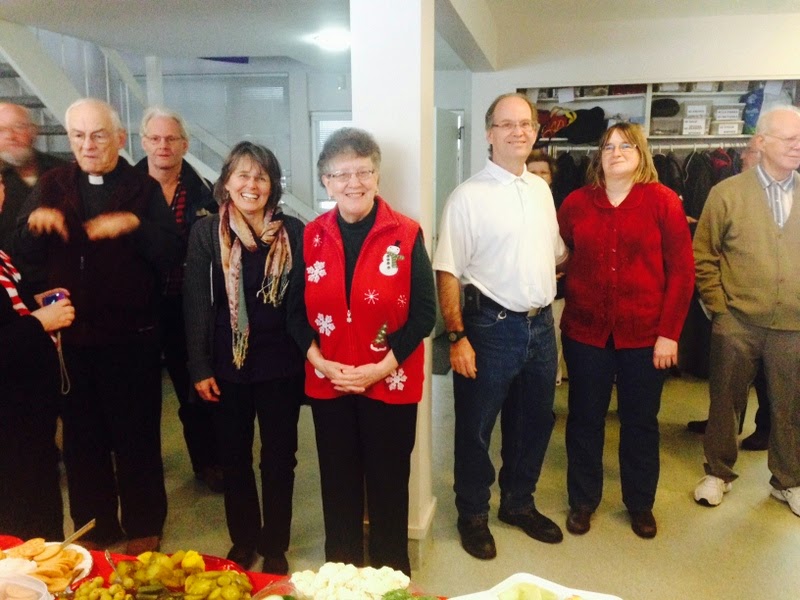
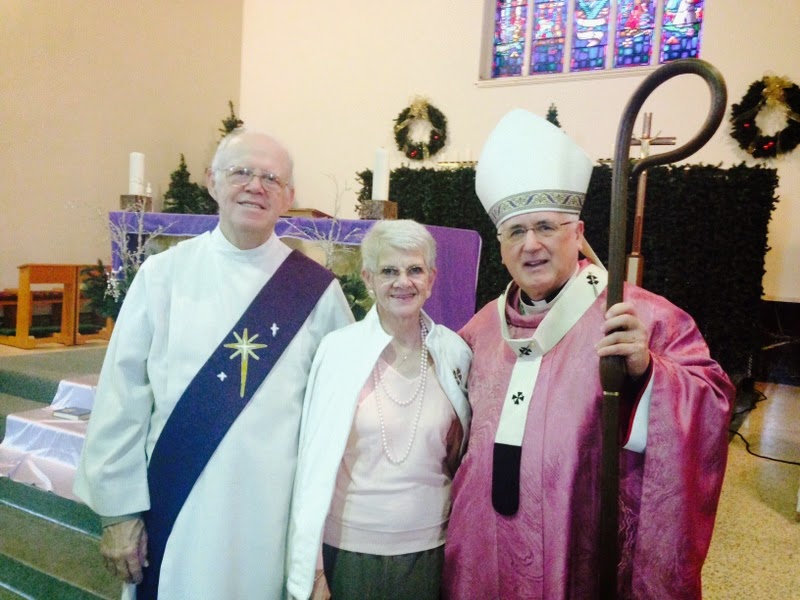














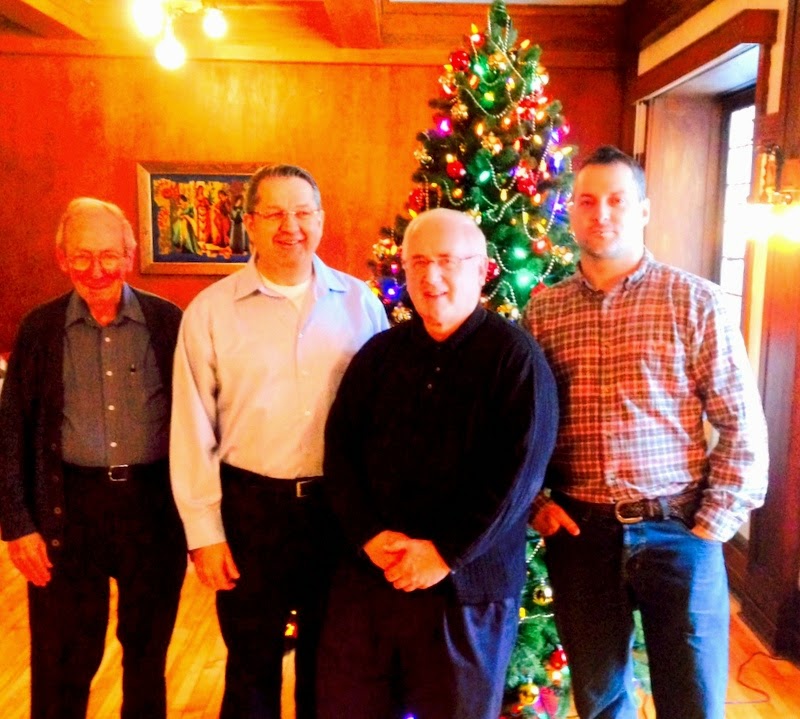.jpg)
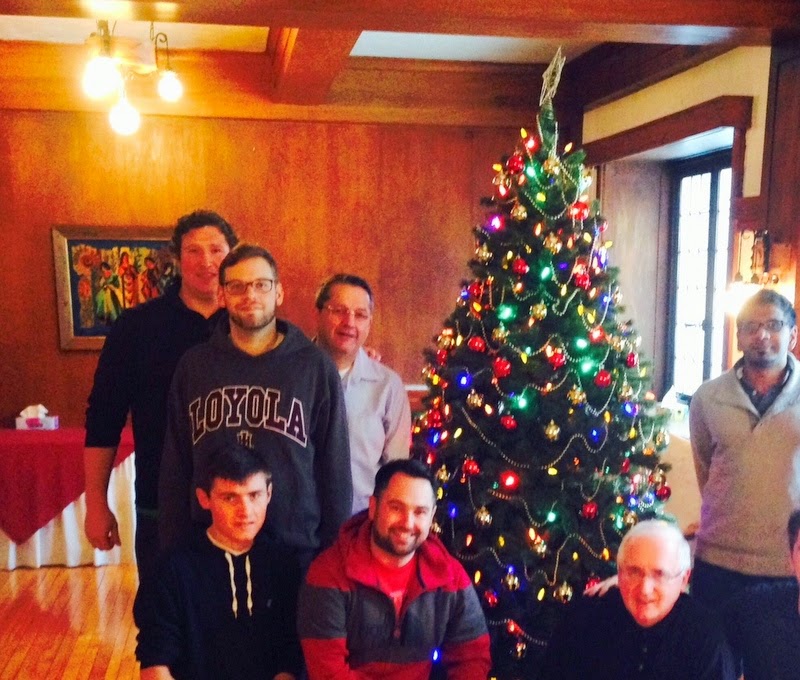.jpg)
%2B(1).jpg)
.jpg)

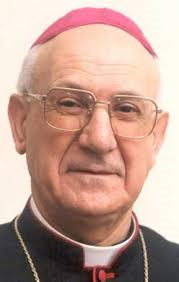








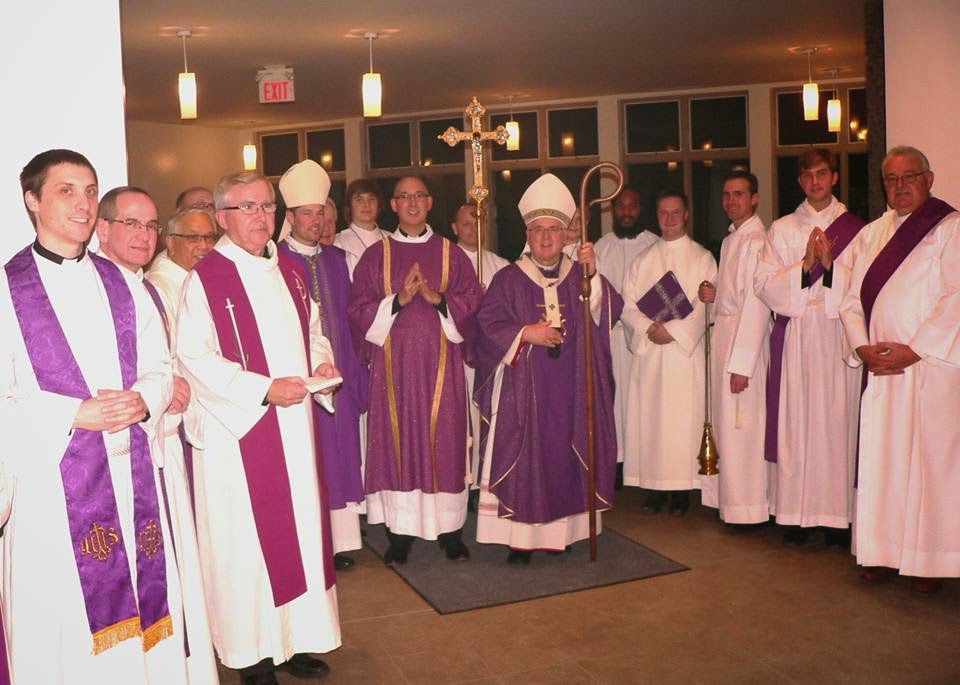




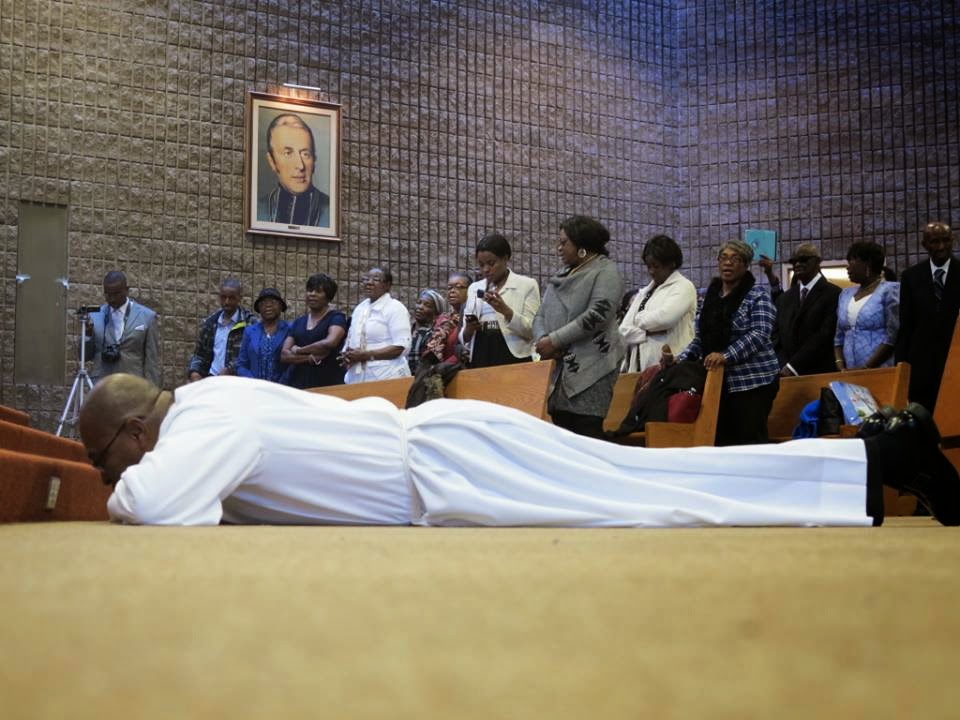
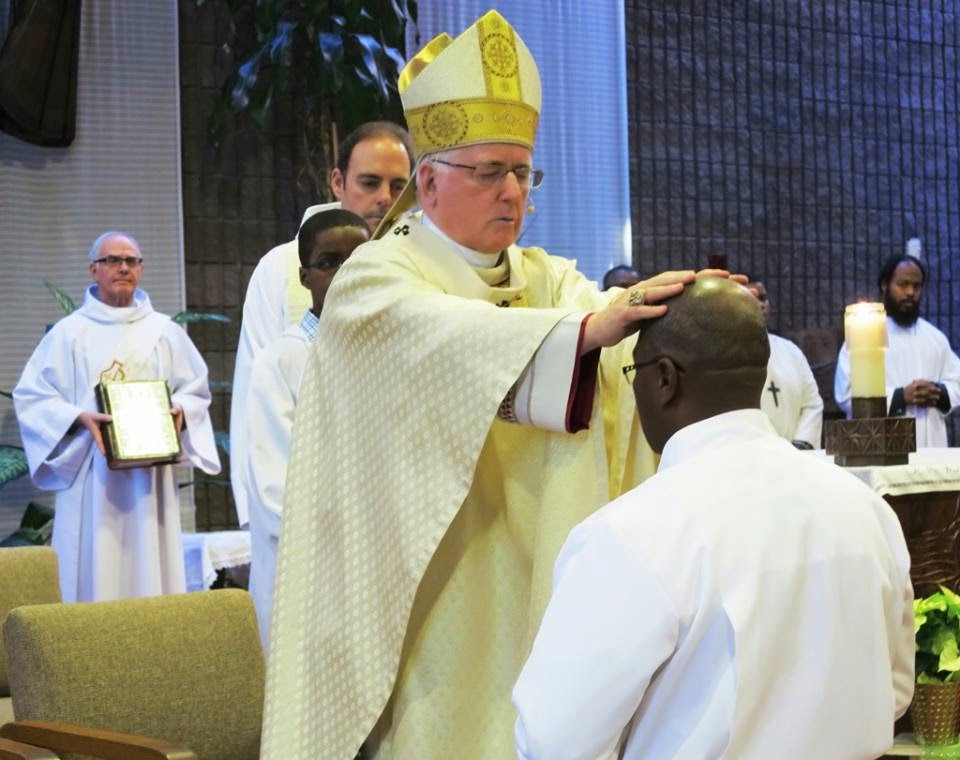


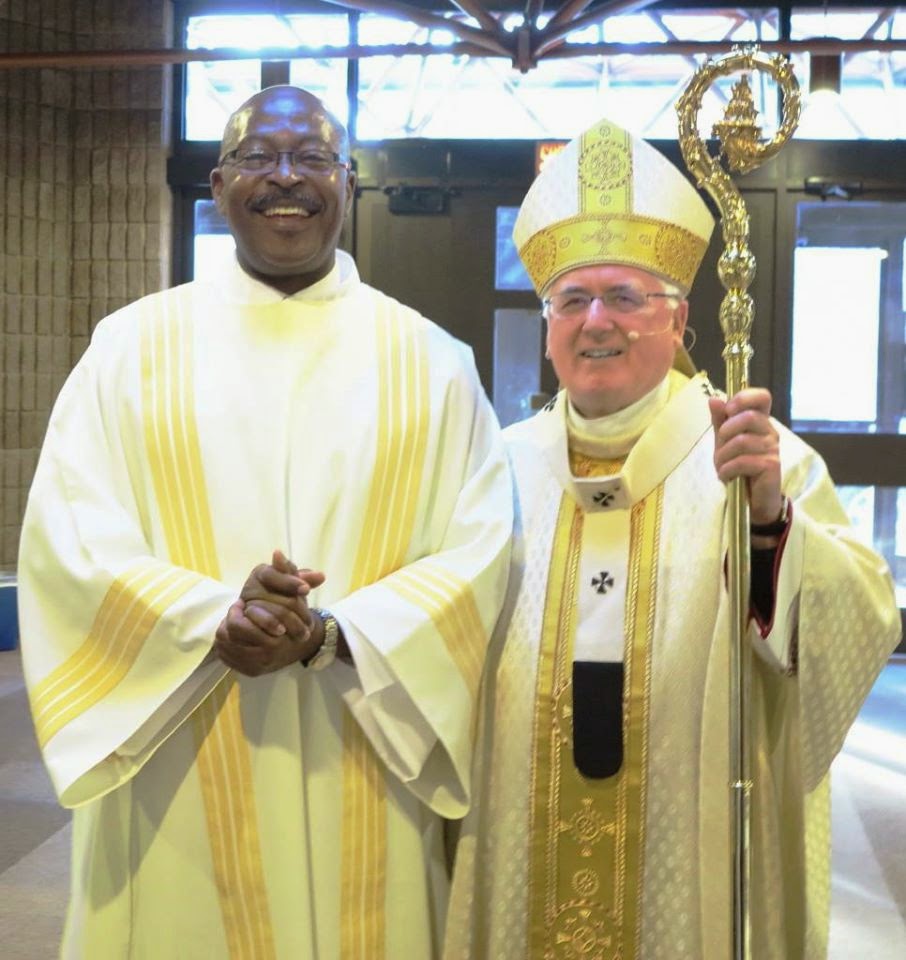




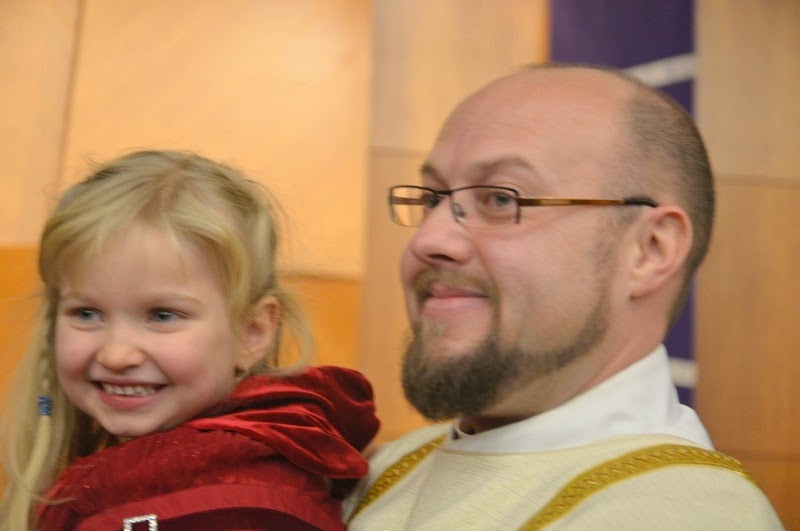


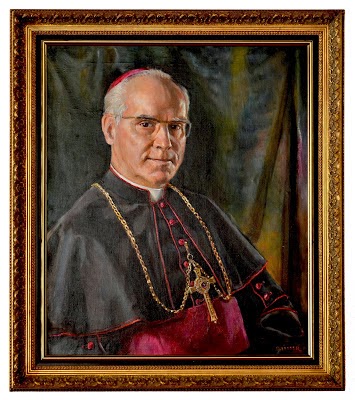





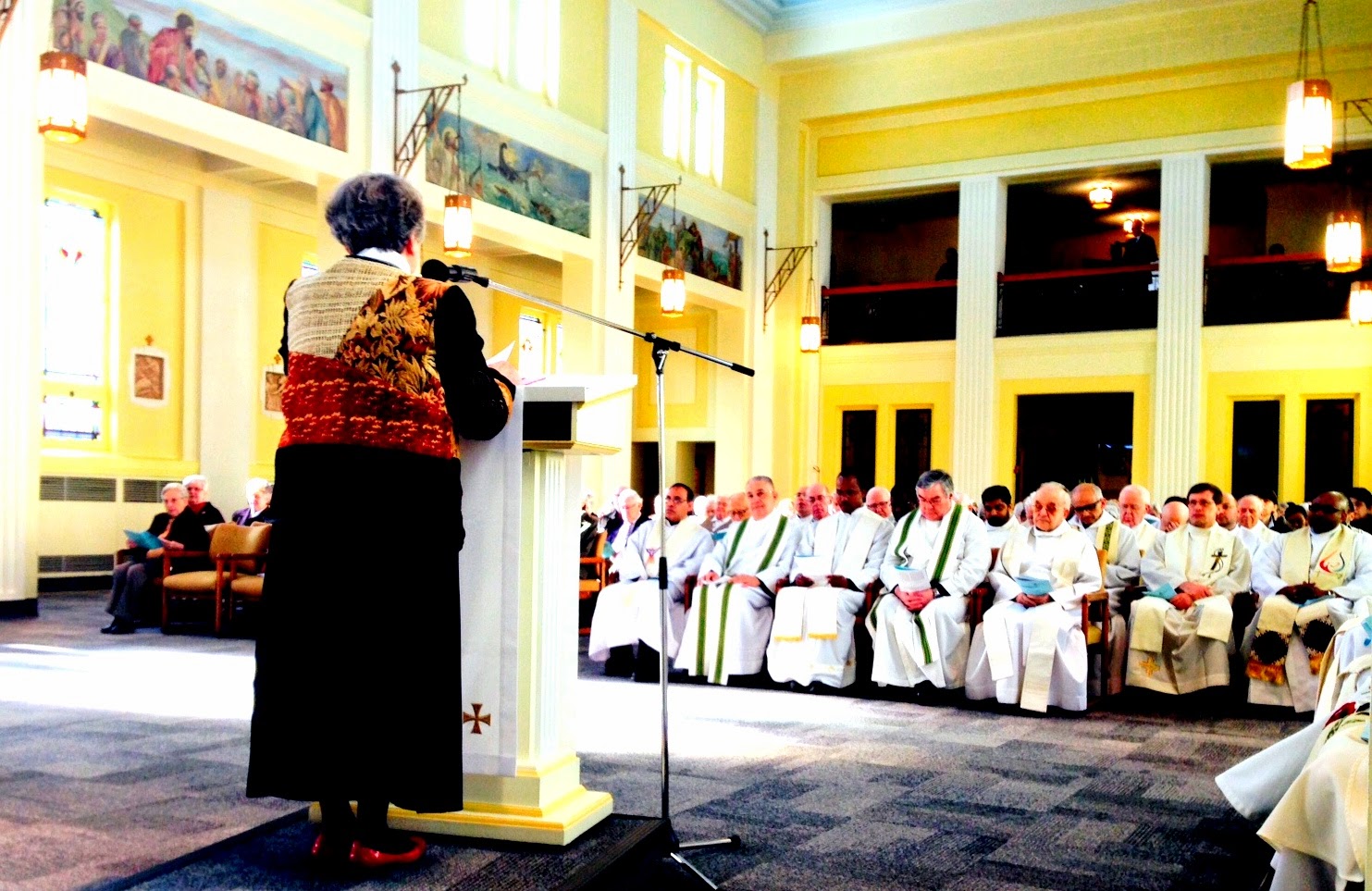-005.jpg)
-004.jpg)
-006.jpg)
-005.jpg)
-006.jpg)




